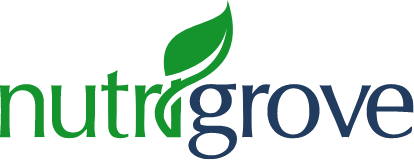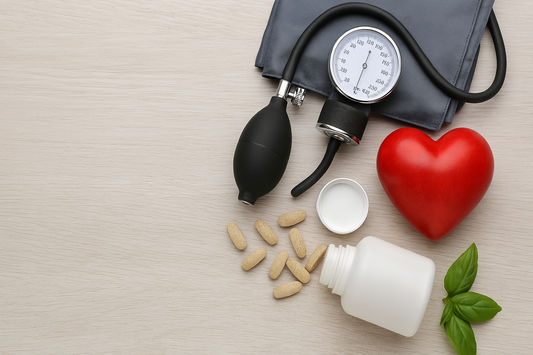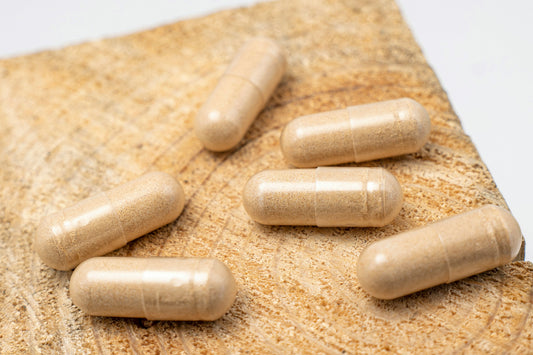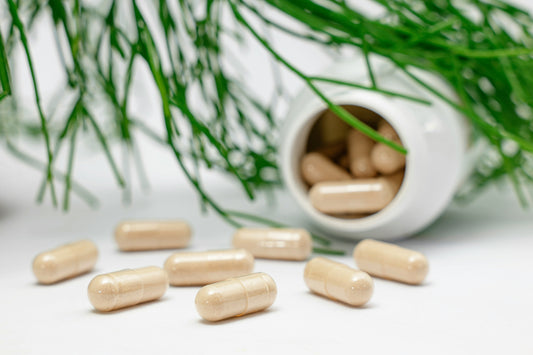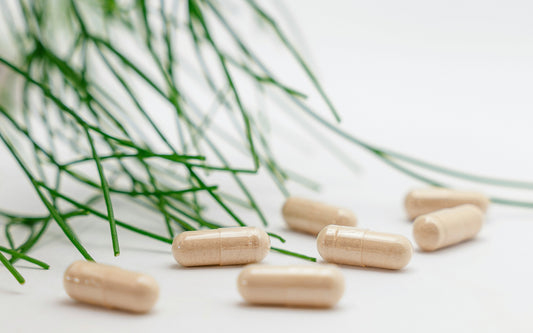High blood pressure, or hypertension, is a common condition that affects millions of people around the world. If left untreated, it can lead to serious health complications, such as heart disease and stroke. While medication can be an effective way to manage high blood pressure, there are also natural remedies that can help lower blood pressure and improve overall heart health.
In this section, we will explore powerful natural remedies for high blood pressure and provide an overview of the article's content. We will discuss the benefits of lifestyle modifications, dietary changes, and holistic approaches for lower high blood pressure.
By the end of this article, you will have a deeper understanding of people with high blood pressure and the various natural remedies that can help you maintain healthy lifestyle. Let's dive in and explore the world of natural remedies for high blood pressure.
Understanding High Blood Pressure
High blood pressure, also known as hypertension, is a common condition where the force of blood against the walls of the arteries is consistently too high. This can cause damage to blood vessels and increase the risk of heart disease and stroke.
Hypertension is often referred to as the "silent killer" because it can develop gradually over time without noticeable symptoms. It is crucial to monitor blood pressure regularly, especially as you age or if you have other risk factors such as obesity or a family history of hypertension.
The causes of high blood pressure can vary, but some common factors include a diet high in sodium, lack of physical activity, and chronic stress. Other factors include genetics, age, and certain medical conditions like obesity, diabetes, and kidney disease.
If left untreated, high blood pressure can have serious consequences, such as heart attack, stroke, and kidney damage. It is essential to work with a healthcare provider to manage hypertension and minimize the risks.
Lifestyle Changes to Control High Blood Pressure
High blood pressure, also known as hypertension, can lead to serious health complications such as heart disease and stroke. While medication can be effective in managing high blood pressure, lifestyle changes may lower blood pressure levels.
The following lifestyle modifications are ways to lower your blood pressure:
Dietary Modifications
Eating a diet that is rich in whole grains, fruits, vegetables, fish, lean meats, and low-fat dairy products can help reduce systolic blood pressure. It is important to limit the intake of saturated and trans fats, sodium, and added sugars as these raise your blood pressure. Don't forget 8 glasses of water is recommended drink per day, under hydrating raise blood pressure in some individuals. Try to have one drink of water every 2 hours you are awake.
Physical Activity
Regular physical activity can help lower diastolic blood pressure and improve heart health. Aim for at least 150 minutes of moderate-intensity exercise per week. This can include activities such as brisk walking, cycling, or swimming.
Stress Management Techniques
Stress can contribute to high blood pressure levels. Engaging in relaxation techniques such as deep breathing, meditation, or yoga can help manage stress and reduce blood pressure levels.
Other Lifestyle Modifications
Other lifestyle modifications that can help reduce your blood pressure include quitting smoking, limiting alcohol consumption, and maintaining a healthy weight.
By making these lifestyle changes, individuals can manage their blood pressure levels and reduce the risk of serious health complications.
The DASH Diet for Blood Pressure Control
The DASH (Dietary Approaches to Stop Hypertension) diet is a proven way to lower blood pressure and improve overall heart health. This dietary approach emphasizes consuming foods that are rich in nutrients such as potassium, calcium, and magnesium, while limiting sodium intake.
The DASH diet encourages the consumption of fresh fruits and vegetables, whole grains, lean proteins, and low-fat dairy products. It also recommends limiting the intake of saturated fats, sugary foods and drinks, and processed foods.
Research has shown that following the DASH diet can lower blood pressure by up to 11 mm Hg systolic and 6 mm Hg diastolic. It is also effective in reducing the risk of heart disease and stroke, and maintaining a healthy weight.
Guidelines for Following the DASH Diet
Here are some tips for incorporating the DASH diet into your daily life:
- Gradually increase your intake of fruits and vegetables, aiming for 5-9 servings a day.
- Choose whole grains such as brown rice, quinoa, and whole wheat bread instead of refined grains.
- Include lean proteins such as fish, poultry, and legumes in your meals.
- Limit your intake of high-fat dairy products, and opt for low-fat or fat-free versions instead.
- Choose healthy fats such as avocado, nuts, and olive oil, and limit saturated and trans fats.
- Avoid processed and packaged foods that are high in sodium and added sugars.
- Read food labels carefully to check for sodium levels and choose low-sodium options whenever possible.
By following the DASH diet, you can make significant changes in your diet that can have a positive impact on your blood pressure and overall heart health. Consult with a healthcare professional before starting any new diet or exercise program.
Natural Ways to Lower Blood Pressure
Managing your high blood pressure doesn't always have to involve medications. There are natural ways to lower blood pressure that can be just as effective and have fewer side effects. Here are some natural remedies and techniques that can help you lower your blood pressure naturally:
1. Herbal Supplements
Herbal supplements such as garlic, hibiscus, and Hawthorne have been shown to have blood pressure-lowering effects. Consult your doctor before taking any supplements as some may interfere with medications or have adverse effects on health.
2. Relaxation exercises
Reducing stress levels through techniques like meditation, yoga, and deep breathing can have a positive impact on blood pressure. Incorporating these practices into your daily routine can help you help lower high blood pressure.
3. Exercise
Regular physical activity is essential for maintaining healthy blood pressure. Aim for 150 minutes of moderate-intensity exercise per week, such as brisk walking, cycling, or swimming.
4. Dietary changes
Making dietary changes such as reducing sodium intake, increasing potassium-rich foods, and limiting alcohol can help lower blood pressure. A well-balanced diet that is rich in fruits, vegetables, and whole grains can also be beneficial for blood pressure management.
Implementing these natural ways to lower blood pressure can help you avoid the potential side effects and risks associated with blood pressure medications. Consult with your healthcare provider to determine the best approach to managing your high blood pressure.
Managing Blood Pressure with Medications
While lifestyle changes can be highly effective in help lower high blood pressure, medication may also be necessary in some cases. Blood pressure medication can help treat high blood pressure and reduce the risk of heart disease and other health complications.
Common types of blood pressure medication include:
- Diuretics: These medications help the body eliminate excess sodium and water, which can lower blood pressure.
- Beta-blockers: These medications decrease the heart rate and reduce the workload on the heart, lowering blood pressure.
- ACE inhibitors: These medications relax the blood vessels, making it easier for blood to flow and lowering blood pressure.
It's important to note that medication should only be taken under the guidance of a healthcare provider. They can help determine the best medication and dosage for each individual based on their health history and other factors.
It's also important to monitor for potential side effects of blood pressure medication, including dizziness, fatigue, and dry mouth. If any side effects are experienced, it's important to contact a healthcare provider immediately.
Understanding the Risks of High Blood Pressure
High blood pressure, also known as hypertension, can be a silent killer because it often has no symptoms but can lead to serious health complications. The risks of high blood pressure include an increased risk of heart disease, stroke, and kidney damage.
When blood pressure is consistently high, it can damage the arteries and increase the workload on the heart, leading to a variety of health problems. Over time, this can lead to narrowed or blocked arteries, which can cause heart attacks, strokes, or other serious complications.
In addition to heart disease, high blood pressure can also increase the risk of kidney disease, vision loss, and even dementia. Managing blood pressure is crucial for preventing these complications and promoting overall health.
It's important to get regular blood pressure check-ups and take action to reduce higher blood pressure to reduce the risk of these serious complications. Lifestyle changes and natural remedies can be effective in reducing blood pressure, but in some cases, medication may be necessary to control blood pressure and reduce the risk of heart disease and other health complications.
By understanding the risks of high blood pressure and taking proactive measures to manage it, you can protect your heart health and reduce your risk of serious health problems.
Natural Remedies and Heart Health
Implementing natural remedies for high blood pressure can not only help manage the condition but also improve overall heart health. As high blood pressure increases the risk of heart disease, it is crucial to take proactive steps to maintain cardiovascular health.
Studies have shown that certain natural remedies, such as garlic, hibiscus tea, and omega-3 supplements, can help improve heart health by reducing inflammation and improving cholesterol levels. Similarly, relaxation techniques such as meditation and deep breathing have been shown to lower stress levels, which can also benefit heart health.
It's important to note that while natural remedies can be effective, they should be used in conjunction with other lifestyle modifications and/or medication as recommended by a healthcare professional. Additionally, it's essential to discuss any new supplements or alternative remedies with a healthcare provider before beginning use.
Maintaining Healthy Blood Pressure Levels
Maintaining healthy blood pressure levels is crucial for overall health and well-being. High blood pressure can increase the risk of heart disease, stroke, and other serious health complications. Fortunately, there are several lifestyle modifications that can help reduce blood pressure and promote heart health.
Regular monitoring of blood pressure levels is essential for managing hypertension. Keeping a record of blood pressure readings can help individuals identify patterns and make necessary adjustments.
In addition, reducing sodium intake can have a significant impact on blood pressure levels. Consuming too much sodium can cause the body to retain fluid, leading to an increase in blood pressure. It is recommended that individuals consume no more than 2,300 milligrams of sodium per day, and even less for those with hypertension.
Incorporating physical activity into daily life can also help reduce blood pressure. Regular exercise can strengthen the heart and improve circulation, which can result in treatment of hypertension. Experts recommend at least 30 minutes of moderate-intensity exercise, such as brisk walking or cycling, most days of the week.
Other lifestyle modifications that can help reduce blood pressure include maintaining a healthy weight, limiting alcohol consumption, and quitting smoking. These changes can not only help manage hypertension but also improve overall health and well-being.
In summary, maintaining healthy blood pressure levels is crucial for preventing serious health complications. Regular monitoring, reducing sodium intake, incorporating physical activity, and making other lifestyle modifications can all help reduce blood pressure and promote heart health.
Conclusion: Prioritizing Natural Remedies for High Blood Pressure
Managing high blood pressure is crucial for maintaining optimal heart health. While medications can be effective, natural remedies offer a safe and sustainable alternative that can improve overall well-being.
Through this article, we have explored various natural remedies for high blood pressure, including lifestyle modifications, the DASH diet, and relaxation techniques. By incorporating these strategies into daily life, it is possible to lower blood pressure and reduce the risk of heart disease.
It is important to note that natural remedies are not a substitute for medical advice and treatment. Those with severe or uncontrolled hypertension should consult their healthcare provider for an appropriate management plan.
However, for those with mild to moderate high blood pressure, implementing natural remedies can be a powerful way to promote heart health and well-being. By making small but meaningful changes, such as incorporating more vegetables into meals or practicing deep breathing exercises, individuals can take control of their blood pressure levels and support their overall health.
So why not give natural remedies a try? With dedication and diligence, managing high blood pressure can become an achievable goal. Let's prioritize our heart health and embrace the power of natural remedies for high blood pressure.
